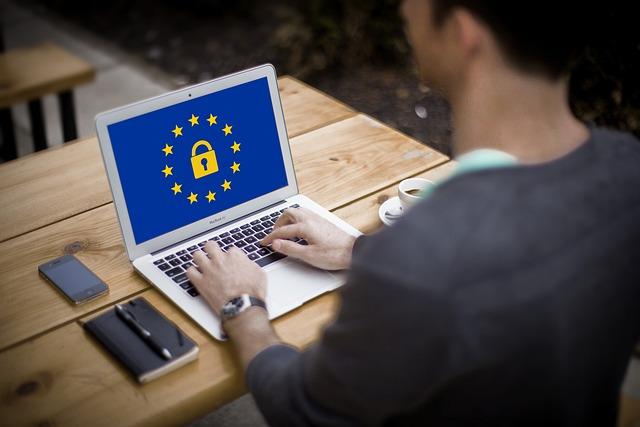In an era where data is often hailed as the new oil, businesses find themselves navigating a labyrinth of global data privacy regulations that can either propel them to new heights or ensnare them in costly pitfalls. As digital footprints stretch across continents, understanding the intricate tapestry of international data laws is no longer a luxury but a necessity. From the stringent mandates of the European Union’s GDPR to the emerging frameworks in Asia and beyond, the global landscape of data privacy is as dynamic as it is complex. This article delves into the essential knowledge businesses must arm themselves with to not only comply with these regulations but to harness them as a competitive advantage. With an authoritative lens, we will explore the evolving legal terrain, highlight key compliance strategies, and unveil the potential risks and rewards that lie ahead in the world of global data privacy.
Navigating the Complex Web of International Data Privacy Laws
In today’s digital age, businesses must deftly maneuver through a labyrinth of international data privacy regulations to ensure compliance and protect consumer trust. The landscape is constantly evolving, with laws such as the European Union’s General Data Protection Regulation (GDPR), California’s Consumer Privacy Act (CCPA), and Brazil’s Lei Geral de Proteção de Dados (LGPD) setting high standards for data protection. Understanding the nuances of these regulations is critical, as non-compliance can result in severe penalties and damage to reputation.
- GDPR: This regulation applies to any business that processes the personal data of EU citizens, regardless of where the company is based. Key requirements include obtaining explicit consent for data collection and ensuring the right to data portability.
- CCPA: Aimed at enhancing privacy rights for California residents, this act mandates businesses to disclose data collection practices and allows consumers to opt-out of data selling.
- LGPD: Similar to GDPR, Brazil’s data protection law requires clear consent for data processing and grants individuals rights over their personal data.
To navigate these complex laws, businesses should invest in robust data management systems and regularly update their privacy policies. Employing a dedicated data protection officer can also be a prudent step to ensure ongoing compliance and to address any potential breaches swiftly.

Key Compliance Strategies for Global Data Protection
Navigating the intricate web of global data privacy regulations requires a strategic approach that balances compliance with operational efficiency. To achieve this, businesses must focus on several key strategies that ensure adherence to international standards while safeguarding consumer trust.
- Understand Regional Differences: Each region has its own set of regulations, such as the GDPR in Europe or CCPA in California. It’s crucial to comprehend these differences and tailor your data protection policies accordingly.
- Implement Robust Data Governance: Establish clear protocols for data collection, storage, and processing. This includes appointing a Data Protection Officer (DPO) and conducting regular audits to ensure compliance.
- Embrace Privacy by Design: Integrate privacy considerations into the development of new products and services from the outset. This proactive approach not only aids compliance but also enhances user trust.
- Employee Training and Awareness: Regular training sessions for employees on data protection laws and best practices are essential. This ensures that everyone in the organization is aligned with compliance goals.
By prioritizing these strategies, businesses can effectively manage the complexities of global data protection, mitigating risks and fostering a culture of privacy that resonates with consumers worldwide.

Understanding Regional Nuances in Privacy Regulations
In the ever-evolving landscape of global data privacy, understanding the distinct characteristics of regional regulations is crucial for businesses. Each region, from the European Union to Asia-Pacific, enforces unique rules that reflect its cultural, legal, and political nuances. For instance, the General Data Protection Regulation (GDPR) in the EU is renowned for its stringent consent requirements and hefty penalties, emphasizing the protection of personal data as a fundamental right. In contrast, the California Consumer Privacy Act (CCPA) in the United States offers consumers the right to know, delete, and opt-out of the sale of personal information, reflecting a more market-driven approach.
- European Union: GDPR focuses on data minimization and user consent.
- United States: CCPA emphasizes consumer rights and transparency.
- Asia-Pacific: Varies widely, with countries like Japan adopting stringent measures similar to GDPR, while others are still developing frameworks.
Adapting to these diverse regulatory environments requires a nuanced strategy. Businesses must stay informed about regional updates and tailor their data handling practices accordingly. This not only ensures compliance but also builds trust with consumers who are increasingly aware of their data rights.
Empowering Your Business with Robust Data Privacy Practices
In the ever-evolving landscape of global commerce, understanding and implementing strong data privacy practices is no longer optional—it’s a critical component of business success. Companies must navigate a complex web of regulations, from the GDPR in Europe to the CCPA in California, each with its own set of requirements and penalties for non-compliance. Robust data privacy practices not only safeguard against hefty fines but also build trust with consumers, who are increasingly aware of their digital rights.
To empower your business, consider the following strategies:
- Conduct Regular Audits: Ensure that your data handling processes align with current regulations.
- Invest in Training: Educate your team about the importance of data privacy and how to manage data responsibly.
- Implement Advanced Security Measures: Use encryption, access controls, and other technologies to protect sensitive information.
- Develop Transparent Policies: Clearly communicate your data practices to customers, fostering transparency and trust.
By prioritizing these practices, businesses can not only avoid legal pitfalls but also position themselves as leaders in the digital age, where consumer trust is paramount.





